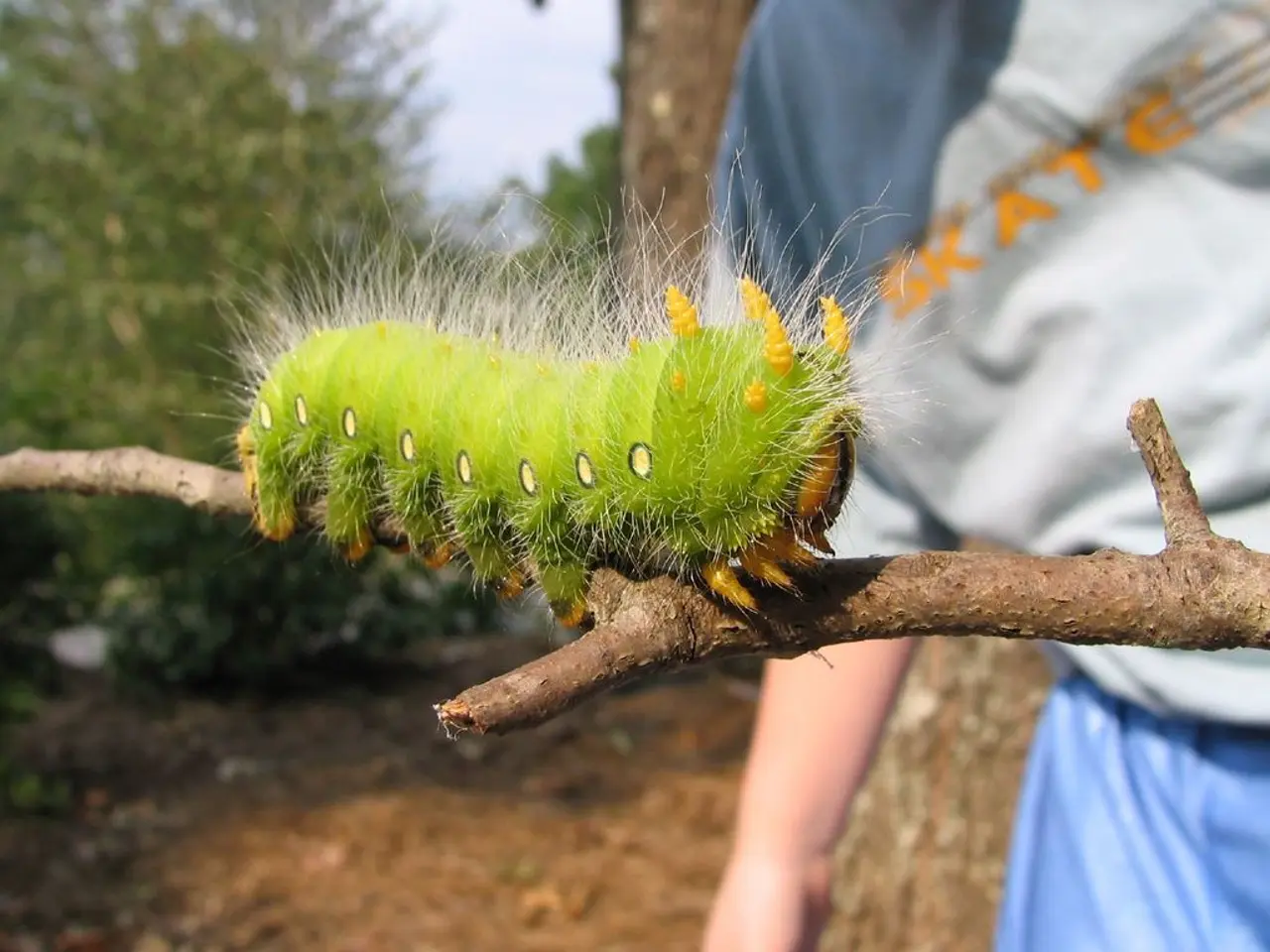Managing Oak Processionary Caterpillars with Neem Seed Extract: A Promising Approach for Düsseldorf
Oak procession spinners festivities commence in Düsseldorf
In an effort to combat the oak processionary caterpillar (Thaumetopoea processionea), the city of Düsseldorf is turning to a natural and environmentally friendly solution: neem seed extract. This biozide, derived from neem seeds, has shown promise in controlling the caterpillar population and reducing allergic reactions in humans.
Effectiveness in Controlling Oak Processionary Caterpillars
Neem seed extract contains azadirachtin and other limonoids, which act as insect growth regulators, feeding deterrents, and anti-ovipositional agents. These compounds disrupt the caterpillar’s development and reduce feeding, making it an effective tool in managing these pests. Studies on neem-based products against lepidopteran caterpillars, the group that includes oak processionary moths, have generally shown reduced larval feeding and growth.
For best results, neem seed extract should be applied when caterpillars are in early larval stages, before the development of irritating hairs. When applied properly, neem extract can reduce caterpillar survival rates and decrease their numbers on treated trees.
Prevention of Allergic Reactions in Humans
Oak processionary caterpillars produce tiny, urticating hairs containing a toxin called thaumetopoein, which can cause skin rashes, eye irritation, respiratory problems, and allergic reactions in humans. Neem extract does not neutralize these hairs or toxins directly. Instead, it reduces caterpillar populations, thereby potentially lowering exposure risks for humans.
While neem extract can help lower the risk of allergic reactions by controlling caterpillars, it does not provide direct protection from the caterpillars' irritating hairs. For comprehensive management and prevention of allergic reactions, neem-based treatment should be part of an integrated pest management strategy, including mechanical removal, protective measures for workers, and public awareness.
The Düsseldorf Approach
In Düsseldorf, 100 trees will be equipped with traps containing a natural attractant from the common oak. Around 750 oaks will be specifically sprayed with the neem biozide. The owner is responsible for removal on private properties. Affected trees in the city area can be reported to the gardening department via email at [email protected].
For those who come into contact with the caterpillars, immediate action is recommended. Not scratching and changing clothing, showering, and washing hair are essential steps to minimize exposure. Embedded caterpillar hairs can be removed with the adhesive side of adhesive strips. In case of eye contact or shortness of breath, visit a doctor immediately.
The use of neem seed extract as a biozide is an interesting and ecologically friendly approach under investigation. Its biodegradable nature and relatively low toxicity to non-target organisms make it a more environmentally sustainable option than synthetic insecticides. If you are considering neem seed extract for managing oak processionary caterpillars, it is advisable to consult local experts or pest control authorities who can provide guidance tailored to your specific situation.
Mental health benefits can be a byproduct of environmental science efforts, as the reduction of oak processionary caterpillars in Düsseldorf via neem seed extract may lead to a decrease in allergic reactions, thus promoting health-and-wellness for city residents. Since neem seed extract is derived from environmental-science research, its application in combating caterpillars can also support the general field of science.
As the city of Düsseldorf pursues sustainable pest management strategies, research into the long-term impact of neem seed extract on both caterpillar populations and overall health-and-wellness of the community is essential to ensure comprehensive benefits for mental health and environmental conditions simultaneously.




